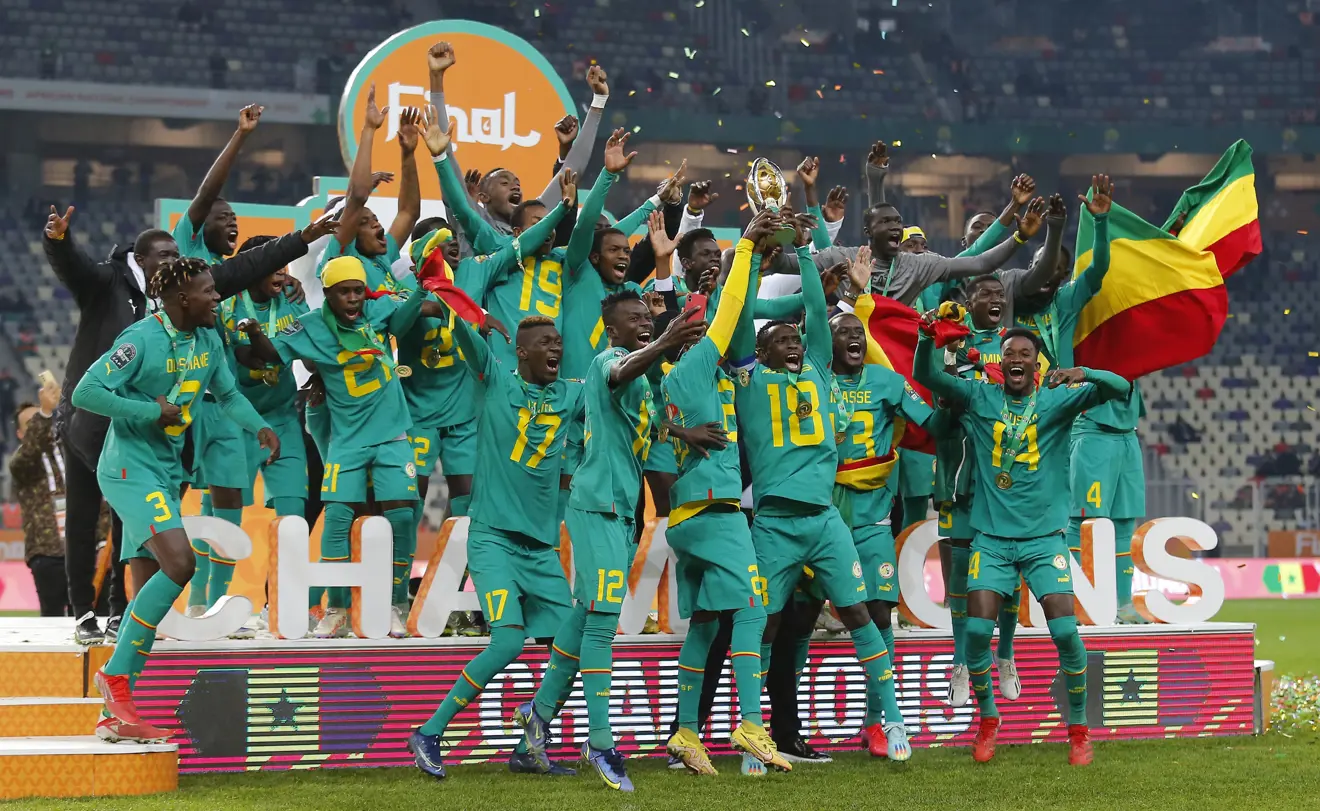
 Senegal celebrates after winning the 2022 CHAN/CAF
Senegal celebrates after winning the 2022 CHAN/CAFIn the world of African football, two major continental tournaments often spark excitement and pride across the continent-the African Nations Championship (CHAN) and the Africa Cup of Nations (AFCON).
While both are organised by the Confederation of African Football (CAF), they serve different purposes and cater to different categories of players.
Although they both involve national teams competing for continental glory, they serve very different purposes and have distinct rules, especially concerning player eligibility.
Introduced in 2009, CHAN is a tournament designed to exclusively feature players who are active in their national domestic leagues.
This means that only footballers who play in clubs within their home country are eligible to participate.
For example, a Kenyan striker playing for Gor Mahia can be selected to represent Kenya in the CHAN tournament.
However, if the same player transfers to a club in Tanzania, South Africa, or Europe, they become ineligible, regardless of their nationality.
This restriction makes CHAN a unique platform, created with the aim of promoting and strengthening domestic football across Africa.
It gives lesser-known, locally based players a rare opportunity to wear the national jersey and showcase their talent on a continental stage.
The then CAF President Issa Hayatou said the competition will enable local players to showcase themselves and increase their market value to recruiters.
“We designed it with the players who play in our domestic leagues in mind, those who rarely get called up to the senior national team, which is 99% made up of players based in Europe… This competition will enable local players to showcase themselves and increase their market value to recruiters,” he said.
It the competition also allows national team coaches to assess local players in a competitive international environment and potentially promote them to the senior national team for other competitions.
In contrast, AFCON is Africa’s flagship football tournament and one of the oldest continental competitions in the world, having been launched in 1957.
It is open to all eligible players, regardless of where they play professionally.
Whether a footballer is in the English Premier League, the French Ligue 1, or the Saudi Pro League, they can be called up to represent their country at AFCON.
As a result, AFCON is often packed with African football stars who ply their trade in top international leagues.
The tournament is widely followed both within and outside Africa, attracting global media attention, commercial partnerships, and fan interest.
It is held every two years and has grown to become a critical event in the FIFA football calendar.
In terms of prestige and visibility, AFCON stands as the continent’s top-tier competition.
However, CHAN plays an equally important role by nurturing domestic football and offering a stepping stone for locally based players who may one day graduate to AFCON or even attract international club contracts.
Another difference lies in the structure and competitiveness.
While both tournaments follow a similar format with group and knockout stages, CHAN often presents a more level playing field as all teams draw from local talent pools.
AFCON, on the other hand, often reflects the disparities in football development and resources among nations, as countries with more players in top international leagues tend to perform better.
In summary, CHAN is about celebrating and elevating local talent, while AFCON is the grand stage that brings together Africa’s best, regardless of where they play.













